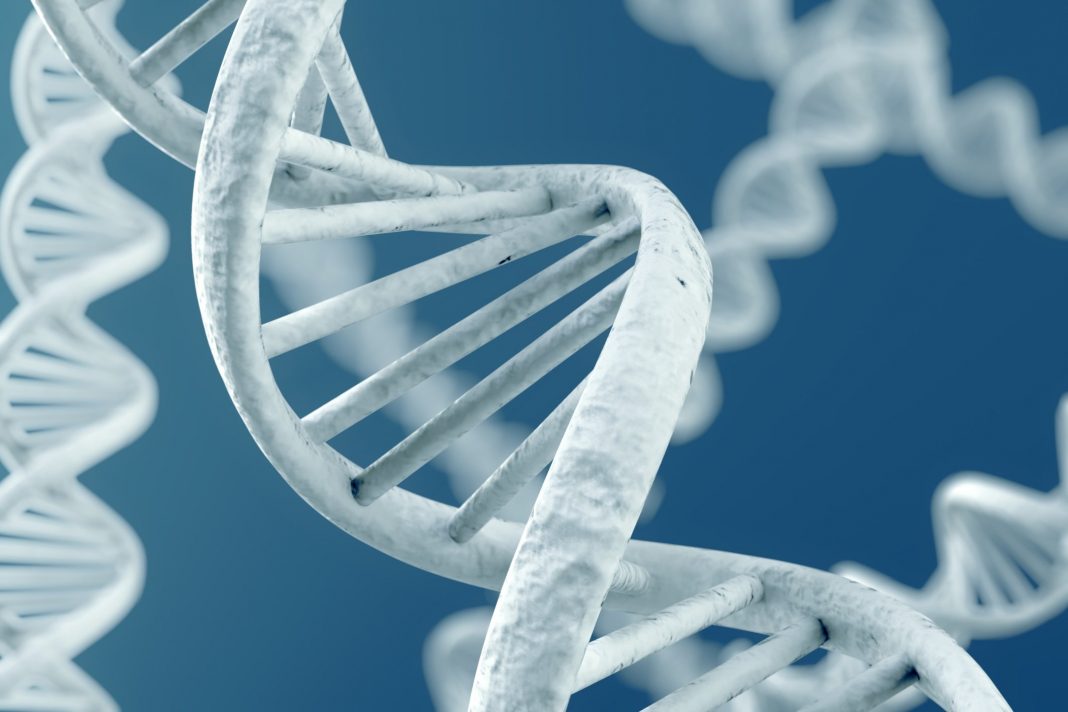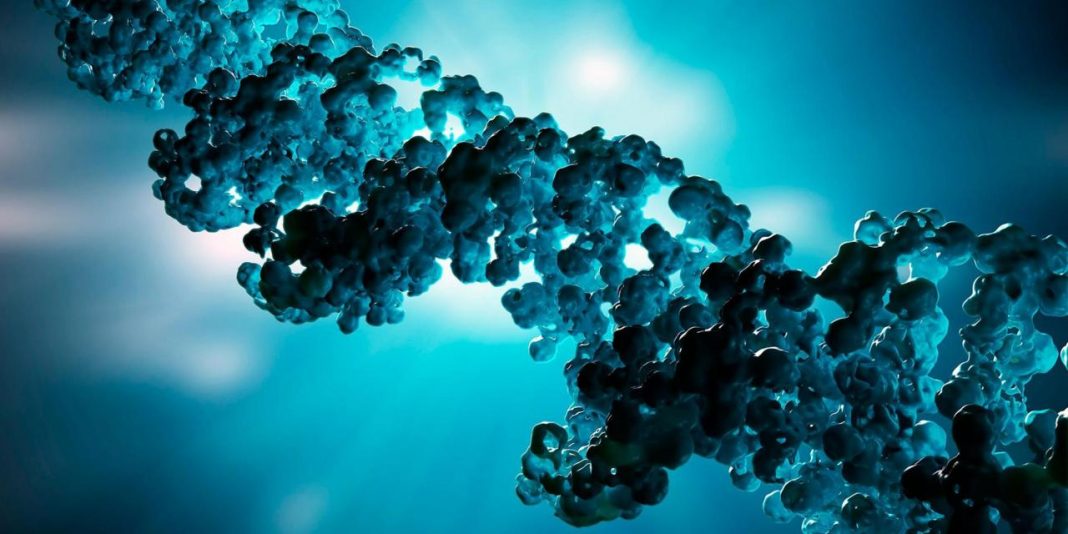As obesity rates increase in America, with many other first world nations following closely behind, we are all looking for ways to keep our waistlines trim, which becomes especially difficult as we age. In her new book, Younger, Dr. Sarah Gottfreid, a gynecologist and an expert on epigenetics, the study of gene expression, has revealed the results of her research about environmental influence on gene expression and how it effects weight loss, metabolism, and aging.
According to Gottfried, only 10% of your risk for weight gain, lagging metabolism, and early aging is genetic whereas the other 90% is determined by your exposome, what scientists call the external environmental exposures and the internal effects on your body. Everything from what we eat, how we feel, and what we do makes up our exposome and becomes the determining factor in weight, metabolism, and aging. But your genes still play a part that must be taken into consideration.
Have you ever ordered pizza with friends to share? Everyone has the same toppings and the same number of slices but there’s always a friend or who two who gains weight while everyone else stays the same. One theory suggests that genes are the true cause behind this. So-called “thrifty” genes left over from our ancestors and a time where food was scarce and the ability to gain weight from a few resources was a survival advantage. Now that food scarcity is less of a problem for the first world, these genes are more troublesome than helpful. However, even if you are preprogrammed with this genetic disadvantage, certain lifestyle changes can activate or deactivate specific effects, in essence allowing you to hack your genes.
First, let’s get to know the genes most directly responsible for the control of weight gain, metabolism, and aging: FTO, FKBP5, PPARG, and ADRB2.
To start with, the most popularly studied obesity gene is the one that controls the production of the FTO enzyme. One of the functions of FTO is to detect nutrients consumed. Variations in the gene responsible for FTO could affect a person’s appetite and hunger. Studies show that those with a specific variation tend to have the higher body to mass ratios.
However, your level of physical activity can determine whether this gene is active. For example, Amish populations have a higher incident rate of these variations appearing, yet because an Amish lifestyle is usually accompanied by several hours of daily physical labor, these genes are, for all intents and purposes, deactivated and obesity is rarely present.
Often a key factor to a slowed down metabolism and early is stress levels. While certain levels of stress are unavoidable, if your genes make you more susceptible to harmful effects of it can lead premature aging and slow metabolism. The main genetic culprit of this effect FKBP5 which controls the hypothalamic-pituitary-adrenal axis (HPA), the system that controls your body’s response to stress.
Another factor in weight gain, specifically fat storage and glucose metabolism, is PPARG. When PPARG is present in the right amounts, it helps create new fat cells and unlocks energy from fat in the blood stream. However, an over activation of the gene that produces PPARG can lead to weight gain and all the health risks associated with obesity, like heart disease and diabetes.
Similarly, ADRB2, or the beta-2 adrenergic receptor, the gene also contributes to the breakdown of fats, amongst many other functions. Although the full effect of this gene is not entirely known, it has been found in groups of women at increased risk for metabolic syndrome, which in turn indicates a greater risk for diabetes and heart disease.
Now that we know more about the cluster of genes partially responsible, what can we do to optimize, activate, or deactivate them to best serve our waistlines? Dr. Sara Gottfried has a series of tips to control exposome with daily habits.
First, she recommends better stress management. As previously mentioned, stress is a leading factor in premature aging. In Nobel Prize winning research, Elizabeth Blackburn discovered that damage to telomeres, structures on the tips of chromosomes, caused by the perception of stress. This perception of stress is key because it means that drastic life changes, ie quitting your job, aren’t necessary. Instead, Gottfried suggests scheduling regular sessions of down time. Whether this manifests as meditation time, a calming yoga practice, prayer, or Netflix and chill, the important part is the net result, the feeling of relaxation, and reducing the strain on the stress response system.
An additional aid to relaxation could be a trip to the sauna. As Gottfried’s next suggestion, heat in the form dry saunas, infrared, hot tubs, or steam rooms can improve you exposome. Research shows dry saunas improve your body’s ability to handle aging while at the same time increasing your health-span by aiding in relaxation.
Next Dr. Gottfried suggests exercise but not just harder and more, instead exercise smarter. Avoid the focus on the number of calories burned per session but a movement over longer periods of time. Intense programs like CrossFit or long term running like marathon training, increases stress on the body, adding strain instead of help. She recommends starting a yoga or taking a barre class as the main source of exercise with some high-intensity interval training (HIIT) or burst training for occasional variety. As for frequency, as much as you can manage would be optimal but at least 30 minutes, four to six days a week.
Finally, Gottfried’s diet suggestions are simple: consume more detoxifying foods, improve your overall diet, exchange tea for coffee, and decrease your alcohol intake.
Detoxifying foods, like broccoli sprouts, cabbage, cauliflower, kale, other cruciferous vegetables, Brazil nuts, and walnuts increase nutrigenomic pathways, which are the ways that the foods you eat interact with your genetic makeup.
In general, food is one of the strongest influences on your weight and the genes that contribute to it. Making better choices can have a profound effect even when the choice seems as inconsequential as eliminating artificial sweeteners and added sugar or which type of oil to cook with. Removing processed foods is almost a common sense choice but what should they be replaced with? Gottfried’s top nutrient dense replacement choices are: fermented foods ( kimchi, sauerkraut, coconut kefir, etc); healthy oils (coconut, grass-fed butter, avocados, chia or flax seeds); pasture raised chicken, low and slow carbs (sweet potatoes, yams, yucca, quinoa), and bone broth made from wild-caught fish or pasture raised chicken.
As for eliminating caffeine, nearly half of the population is intolerant of any more than about 200 mg of caffeine. Which means more than two cups of coffee can cause the side effect of anxiety, jitters, and increased risk of heart disease. Eliminating caffeine entirely reduces these side effects to nil but replacing coffee for caffeine free teas has the added benefit of the antioxidant phytonutrients found in many teas. Even if you can handle caffeine, switching to green tea still has the caffeine boost plus all the benefits of its phytonutrients, which have been shown to reduce the risks of weight gain and cancer.
Finally, a choice that may cause wrinkles next time you visit a bar, but reducing your alcohol intake to only two servings a week can make a drastic impact on your health-span. Alcohol interrupts your sleep cycle, increases the feeling of hunger, lowers your metabolism, and raises ‘bad’ estrogen and cortisol, a stress hormone, levels.
But it’s not only your food consumption and activities that can have an effect on the genes that control our weight and aging processes, your environment, as in or work or home space, is also a large part of your exposome. Often pollution and toxins can have an effect on your body that mimics poor lifestyle choices like weight gain, memory loss, headaches, fatigue, and so on.. Even with all the best food choices and yoga classes, if toxins are present, you may still see adverse signs in the biomarkers your genes produce. These biomarkers can be found in your blood, urine, and hair and can indicate which genes are affected or which pollutants are affecting them.
The system with which your body deals with these environmental toxins are two-fold, filtration and disposal, work mainly done by the liver. First, the liver filters toxins, like mold for example, from the blood streams then converts it into molecules that can be excreted through urine, stool, or sweat.
Constant exposure to pollutants and stress can overload the liver and cause a back-up in the body which can sometimes be as bad as the original toxin in the first place. The backup continues to overwork the liver which then has problems eliminating it from the body. Helping the body detoxify with nutrients and minerals is important but removing yourself from a damaging environment is key. If you and your doctor suspect your slow metabolism and weight gain is due to an environmental toxin, like mold present in you home, having your air tested for the presence of spores may be ultimately necessary.
Although mold is the extreme end of the spectrum there are plenty of seemingly innocuous pollutants we can address first and without the expense of tests. For example, simply choosing between the average nail polish or low toxicity alternative, like nail wraps instead, reduces exposure to toxins like dibutyl phthalate, formaldehyde, and toluene. Other simple switches include exchanging your household cleaners to natural non-toxic version, discarding plastic containers and Teflon coated cookware for glass or stainless steel cookware, or choosing salmon over tuna to avoid heavy metal toxicity.
In the end, aging is inevitable. With age comes a snowball like the effect of a slowed metabolism, an ineffectual control over hormones, and a decline of muscle mass. However, what we do, eat, feel, and where we live or work may increase or decrease the onset of these issues. We are not doomed to only the fate of our genes but instead have considerable control of the expression of those genes, especially ones relevant to metabolism and weight gain, by taking control of our exposome. We may not be able to stop the decline that occurs over time completely but by preventing damage to genes brought on by stress, both emotional and physical, aiding detoxification through food choices and sauna bathing, and maintaining muscle mass through physical activity, we can effectively hack our genes to keep weight down and prevent the effects of aging.
More News to Read
- Testing Quantum Gravity with Merging Black Holes
- Starting a Company? Trust Your Instinct and Stop Listening People
- Radio Waves Might Help Protect Our World From Deadly Space Weather
- Can New Startup Grail Beat Cancer With its New Form of Testing?
- No Time For Visiting Art Galleries? Google Here to Help!!











